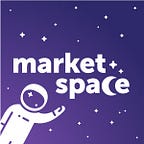Businesses Embracing Blockchain
Is The Ice Of Scepticism Finally Broken?
Orange is the new black, and blockchain is the new Internet.
Or so they say. This may be argued, but the fact that blockchain technologies can be the biggest driving force for changes that business and finance has seen for a long time, remains. Some of the household names embracing blockchain include Microsoft, Walmart, Maersk, Everledger, Singapore Airlines and British Airways. Even more are considering it (or are rumored to). However, the commercial implementation of DLT is far from being all-pervasive, and is mostly at the stage of testing now.
If we are to get down to the basics, blockchain is a combination of a high level of security which cryptography offers and peer-to-peer networking. Together they create a shared and distributed database which is both transparent, accessible, and is extremely difficult to tamper with.
Blockchain comes especially handy for food industry and retail. Walmart took it on board in 2016 having allied with IBM. Now customers and employees can easily track the country of origin and current supplies. Since DLT is cut out for handling large blocks of data and tracking, it’s used by shipping companies and airlines. A more specific use case of blockchain is, for example, proof of provenance in jewelry (the partnership of Brilliant Earth and Everledger), serving for fraud prevention.
As businesses are flooded with data, they need flexible, high-end environments for testing, data distribution and storage, working with copyrighted content or simply large arrays of information. Administration, accounting and record keeping are becoming a huge spending point. Here blockchain is destined to become a gold-mine solution. We’ve already seen quite a few software developers, pharm companies and content providers introduce elements of decentralized systems into their production and storage cycles. Moreover, blockchain allows for trustlessness. So in future it could level to the ground businesses where trust plays a major role — banking, solicitors, audit, even some government functions. Several countries, such as Georgia, Ukraine and Sweden are already moving their property ledgers to blockchain.
Speaking of trustlessness, blockchain is about to revolutionize the spheres where two parties don’t interact directly — such as deals with remote payment or cross-border payments. The immutable timestamps serve as a proof of evidence thus adding a new layer of security to business contracts, wills and other documents of legal force. Moreover, substitution of paid mediators with encrypted database guarantees security.
Crypto is now widely incorporated in the payroll of many companies, especially international ones, as it’s a much faster and effortless way of paying wages. But will blockchain be able to offer a good alternative to such huge transaction regulators as Visa and Mastercard, Paypal or Web Money? At the moment, it doesn’t seem likely: both major cryptocurrencies, Bitcoin and Ethereum, are limited by their source code in the number of transactions they can process per second.
Tokenization implies unseen before levels of scalability for businesses. Some compare it to adding a huge network of little capillary vessels to a few large veins and arteries. This is also a whole new distribution channel, so businesses can raise revenues in markets they have previously had no reach for. The concept of a digital marketplace is garnering more and more acclaim. As for now, OpenBazaar will hardly replace AliExpress, but in a few years — who knows? No wonder that up and running businesses like Kik or Telegram consider ICOs, with fund raising being just a means on their way to a new business model.
Nowadays many companies strive not only for profit-making, but add humanitarian impact to their missions, and this is also where blockchain can help. Better reach to new developing markets can help make better goods and services available to more people, most importantly, to people who haven’t had this access before. Imagine better education delivered on blockchain platforms, accessible even in remote corners of Africa or Asia.
So far blockchain is confidently finding use in many spheres of business and this could lead to a more digitally integrated global economy, with better penetration and fair play.
We’d love to hear your take on it! Join the discussion here or find us in other social networks:
Telegram Group: https://t.me/Market_space_official
Twitter: https://twitter.com/Market_space_
Facebook: https://www.facebook.com/Market.space.system/
LinkedIn: https://www.linkedin.com/company/market-space-decentralized/
Bitcointalk: https://bitcointalk.org/index.php?topic=2961359
